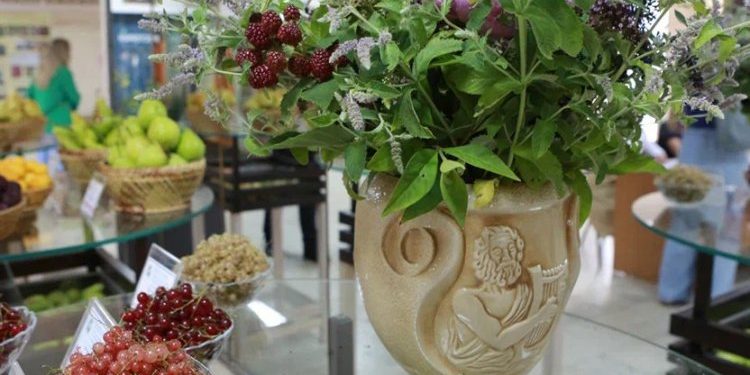In Moscow, the XII International Forum “Garden Days in Biryulyovo” has opened at the Scientific Information Center of the Federal State Budgetary Scientific Institution of the Federal Scientific Center for Horticulture, which will last from August 18 to 19. The topic of this year’s forum was “The contribution of fundamental science to the sustainable development of agriculture, the formation of health and quality of life of the population of the Russian Federation.” The plenary session was attended by the President of the Russian Academy of Sciences A.M. Sergeev, Director of the Federal Scientific Center for Horticulture Academician I.M. Kulikov, Academician Yu.F. Lachuga and other scientists.
“On the one hand, this event is an international conference, but it is also a place where you can generally talk about the problems of developing our agriculture and various interdisciplinary areas that are now of great interest to the country,” President of the Russian Academy of Sciences A.M. Sergeev. – We are now in a very responsible situation, when the issues of modern science-oriented development of agriculture have risen to their full potential. The main problem we have in the country is the inefficiency of our innovation system.”
The President of the Russian Academy of Sciences noted that the reason why the development of agriculture in Russia today is difficult lies in the field of communications and administration. Institutes and research centers have not stopped their work since the times of the USSR, but their achievements are now with great difficulty getting to the implementation. Business, according to A.M. Sergeev, is also not to blame for what is happening. The problem is the lack of a “middle link”, a layer that would connect industrialists with scientists.
“We sometimes discuss this in comparison to, say, the healthcare system. Look – in the Ministry of Health we have the so-called chief freelance specialists in various areas. These are very strong scientists, leaders, but, nevertheless, they occupy responsible administrative positions. The same model of our academic presence should be in the Ministry of Agriculture,” added the President of the Russian Academy of Sciences.
MYSELF. Sergeyev was agreed by the Chairman of the State Duma Committee on Agrarian Issues V.I. Kashin. In his opening report, he outlined other major problems of modern Russian crop and livestock production. Among the main ones was dependence on imported seeds and technologies in many areas. To cope with this, it is necessary to support not only breeders or geneticists, but also developers of machines and combines, which are lacking in Russian farms.
One of the possible solutions was proposed by Academician Yu.F. Shack: “Despite everything and in spite of everything, the institutions continue to function. Every year they produce more than 300 new varieties and hybrids. I must say that until 1990 we had no problems in any direction in seed production, but why? Because under the auspices of the ministry there was a powerful system of seed-growing activities. Then there was a separation of functions. VASKhNIL issued seeds of higher reproductions, then the experimental farms that were with them brought these seeds to the next stages and transferred them to the final farms. There was a clear system. We must take into account the experience that our great ancestors left us. I would like to quote V.I. Edelstein: “Without biology, technology is blind, without mechanization it is dead, but everything is decided by the inexorable economy.” We still have to grow and grow, and without fundamental science it will be impossible.”































